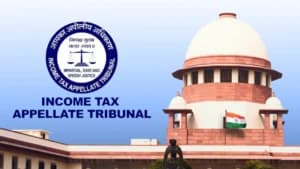The Supreme Court of India addressed a critical question: Can the legal heir of a vehicle owner claim compensation under Section 163A of the Motor Vehicles Act, 1988, for the owner’s death in an accident? The case involved a minor petitioner, Wakia Afrin, who lost both parents in a tragic accident caused by a tyre burst. The Tribunal awarded compensation, but the High Court dismissed the claim, stating a dead person cannot be a defendant. The Supreme Court’s ruling clarifies the interplay between no-fault liability, insurer obligations, and the rights of legal heirs.
Key Legal Observations
1. Section 155 and Insurer’s Liability
The Court emphasized Section 155, which allows claims to survive against the insurer even after the insured’s death. The insurer steps into the shoes of the deceased owner and can defend the claim. The High Court’s dismissal was deemed untenable.
“The insurer can defend any claim against the insured, which it is liable to indemnify under the policy.”
Read also:- SC Orders TSRTC to Reinstate Colour-Blind Driver, Calls Retirement Unlawful
2. Conflict in Judicial Precedents
The Court reviewed conflicting judgments:
Dhanraj v. New India Assurance Co. Ltd. (2004): Held that insurance policies cover only third-party risks, not owner-drivers.
Rajni Devi (2008): Asserted that Section 163A claims cannot involve the owner as both claimant and liable party.
Ningamma v. United India Insurance (2009): Directed reconsideration under Section 166 despite dismissing the 163A claim.
The Court noted inconsistencies and stressed that Section 163A’s non-obstante clause overrides other laws, including policy terms.
“Section 163A supersedes the entire Motor Vehicles Act, insurance laws, and policy contracts. It is a social security scheme for no-fault liability.”
Read also:- SC Closes Wife's Transfer Plea After Mutual Divorce Settlement Between Parties
3. Scope of Section 163A
The Bench disagreed with prior rulings restricting Section 163A to third parties. It highlighted:
- The provision covers all claims for death/permanent disability, irrespective of the victim’s role (owner, driver, or passenger).
- Compensation is calculated via a structured formula (IInd Schedule), eliminating the need to prove negligence.
“The liability under Section 163A is not confined to third parties. It extends to owners/drivers if the claim is filed under this provision.”
Read also:- Delhi High Court Quashes FIR in Sexual Harassment Case After Amicable Settlement
Implications of the Judgment
Insurer’s Expanded Liability: Insurers must honor no-fault claims even for owner-drivers, subject to policy terms.
Legal Heirs’ Rights: Dependents can claim compensation without proving negligence, ensuring faster relief.
Judicial Clarity: The Court referred the matter to a larger bench for an authoritative ruling, acknowledging divergent views.
Case title: Wakia Afrin (Minor) v. M/S National Insurance Co. Ltd.
Case No.: Special Leave Petition (Civil) Nos. 15447-48 of 2024















